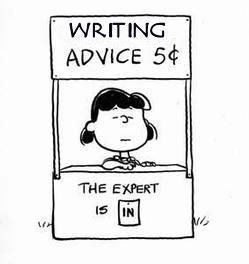Nonfiction Book Proposals for Indie Authors?
[caption id="attachment_1420" align="alignleft" width="174"] She's the expert. Not me.[/caption]
She's the expert. Not me.[/caption]
A few years ago I wrote a nonfiction book proposal to submit to agents. That when I assumed I would go the traditional route. That didn't happen.
Now that I've self-published six books (the Friend Grief series), I'm hard at work on the research for a bigger, more complicated book. Fag Hags, Divas and Moms: The Legacy of Straight Women in the AIDS Community examines the contributions they made around the world for the past 35 years.
I’m assuming that this will be self-published as well. I have an ongoing crowdfunding campaign through the New York Foundation for the Arts which grants tax-deductions for all contributions. There’s a lot of expense related to the research – travel, photocopies, permissions, etc. – so the money is not wasted.
But…
I recently ran into an agent I approached last summer about the idea for this book (that’s all it was at that point). He gave me valuable advice, which is guiding me now. He’s still interested in the book, so I’ll pitch him at a conference in August. It doesn’t necessarily mean I’m interested in traditional publishing, but I’m at a point where I could benefit from having an agent.
I decided to sit down and write a formal book proposal. Because the truth is, indie authors can benefit from doing so.
Here are some resources for crafting a nonfiction book proposal:
Start Here: How to Write a Book Proposal - Jane Friedman
Publish Your Nonfiction Book: Strategies for Learning the Industry, Selling Your Book and Building a Successful Career - Sharlene Martin
The Nonfiction Book Proposal Demystified: An Easy-Schmeasy Guide to Writing A Business Plan for Your Book -Nina Amir
 She's the expert. Not me.[/caption]
She's the expert. Not me.[/caption]A few years ago I wrote a nonfiction book proposal to submit to agents. That when I assumed I would go the traditional route. That didn't happen.
Now that I've self-published six books (the Friend Grief series), I'm hard at work on the research for a bigger, more complicated book. Fag Hags, Divas and Moms: The Legacy of Straight Women in the AIDS Community examines the contributions they made around the world for the past 35 years.
I’m assuming that this will be self-published as well. I have an ongoing crowdfunding campaign through the New York Foundation for the Arts which grants tax-deductions for all contributions. There’s a lot of expense related to the research – travel, photocopies, permissions, etc. – so the money is not wasted.
But…
I recently ran into an agent I approached last summer about the idea for this book (that’s all it was at that point). He gave me valuable advice, which is guiding me now. He’s still interested in the book, so I’ll pitch him at a conference in August. It doesn’t necessarily mean I’m interested in traditional publishing, but I’m at a point where I could benefit from having an agent.
I decided to sit down and write a formal book proposal. Because the truth is, indie authors can benefit from doing so.
- It forces you to explain yourself and your book in an objective way. This book is somewhat personal to me because I am one of those women. But since it’s not about me, I have to approach it in a thoughtful way. Not everyone knows what you know. That means I have to be able to explain it to people who are new to the subject.
- It forces you to organize. The question I had for the agent last summer was about format. I figured there were two ways the book could go, and I wasn’t sure which one made the most sense. In some ways, I’m too close to the subject, so I needed the opinion of someone outside the AIDS community. His feedback confirmed what I suspected was the best way to go
- It forces you to focus on marketing. What books are comparable? Can you define the genre? Who is your audience and why would they want to read your book? What’s your plan for reaching them? These are questions many authors avoid answering, because they force you to create a marketing campaign. And we all know many authors want nothing to do with marketing. It’s not something you can put off considering until after the book is published. I started a Facebook page about the book last September, a full two years before I expect the book to come out. I’ve written freelance articles on the topic and later this year will begin giving presentations
- It forces you to visualize: what will your book look like? One of the requirements for a nonfiction book proposal is a Table of Contents. That was the biggest part of my discussion with the agent, because I knew it would drive the direction of my research and interviews. I’m pretty clear on that now, though I assume it will be tweaked down the line. I’m also visualizing literally: collecting images to be used in the book
- It forces you to write your book. Nonfiction book proposals differ from fiction by not requiring a finished manuscript, just a sample chapter or two. Truthfully, that’s the only part I don’t have. I have freelance articles, but not a chapter. But thanks to the ToC, I know which chapter I’ll write first.
Here are some resources for crafting a nonfiction book proposal:
Start Here: How to Write a Book Proposal - Jane Friedman
Publish Your Nonfiction Book: Strategies for Learning the Industry, Selling Your Book and Building a Successful Career - Sharlene Martin
The Nonfiction Book Proposal Demystified: An Easy-Schmeasy Guide to Writing A Business Plan for Your Book -Nina Amir

